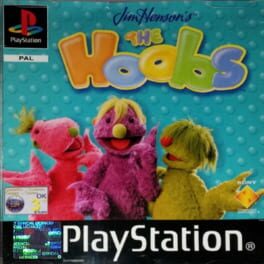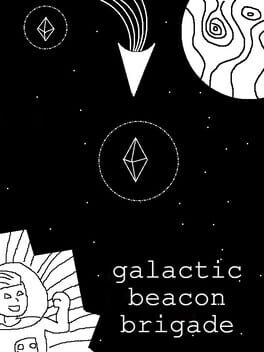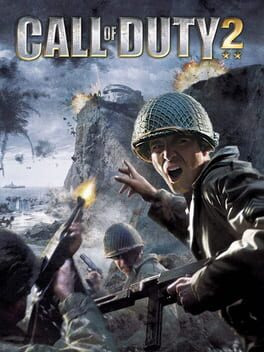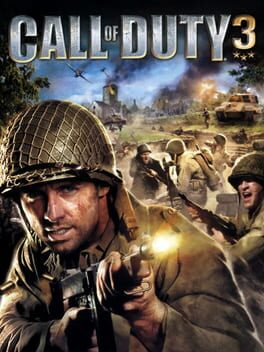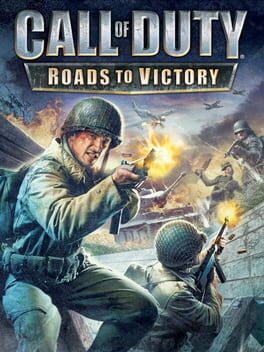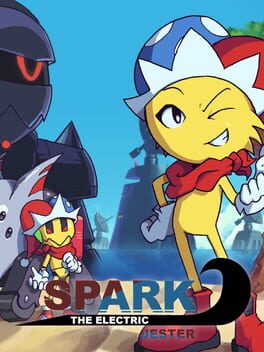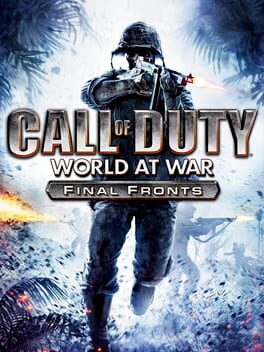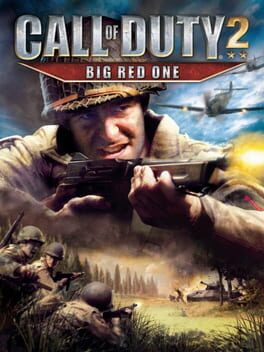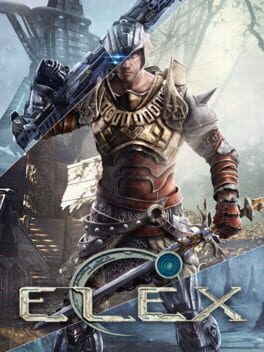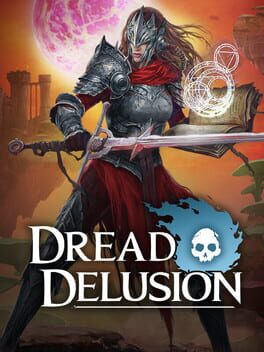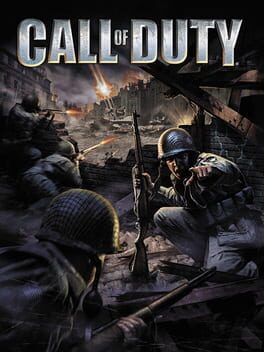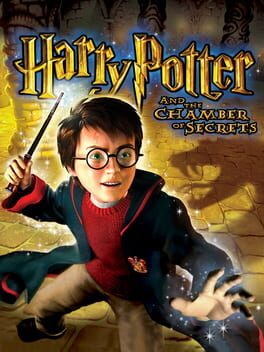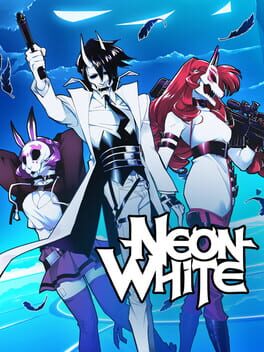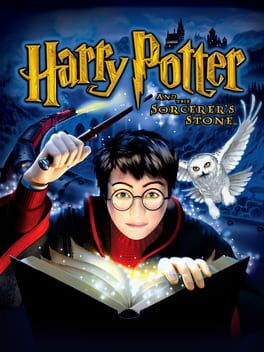Werty800
2002
2005
There is not one mechanic that was changed in this game that I like. The regenerating health sucks. In the first game getting hit by a stray bullet was noticable, here it's NOT getting hit that's noticable, because if one or two bullets from an entire magazine do not hit you, you can just run-and-gun into the enemy with no repercussions. Submachine guns feel better here, but the rifles suffer a good bit. Maybe I could enjoy this change if they didn't remove the quicksave feature. I'd be more than happy to charge in if it didn't mean going back several minutes every time. No idea why the sprint from the expansion pack was removed (especially since your allies can sprint but you cannot) making the checkpoint system even worse as you have to slowly get to the point you already were in, but due to the incosistent enemy behavior you sometimes will die retreading these steps. The levels are also much smaller and shorter, you can see this especially during the defensive ones. The Soviet campaign ends with something akin to Pavlov's House from the original, but instead of the building you defend being several stories tall, here you have two rooms one each floor, two floors total, and a staircase next to each room. There's just not enough space to maneuver. Also, one of the biggest selling points of Call of Duty was moving together with your squad, I think, but here your squad is trash and cannot shoot enemies standing right in front of them and nobody is checking their behinds, meaning you will occasionally get killed by a random enemy who spawned behind you or didn't peek their head before. And possibly the worst thing is the grenades spam. Some chokepoints are just annoying in the worst sense of the word, super unsatisfying, and on harder difficulties alternating between running away from grenades and running into cover after getting shot once means you can spend way too much time on one checkpoint.
Also, why in the world does a sidearm take up an entire weapon slot now? You move much faster with it so it could totally fix the sprint issue, but it takes up as much space as an anti-tank weapon apparently?
As for additions, I like the multiple objectives in theory, but these missions tend to get more frustrating than anything due to the endlessly respawning enemies. There's apparently thousands of enemies just behind each objective that disappear when you walk next to the building's window. Also, nobody secures the objectives you already captured, meaning that the AI who runs there will still run there and you will, again, get shot in the back. Smoke grenades are my favorite addition, they allow for cheeky plays like running through the smoke to catch enemies unaware provided you know their positions, because they do not move.
Game could still be fun if it had larger levels, there's still that great sound design and those good feeling guns. Some okay bits but largely I was just reminiscing of the better missions from the original. Big ups for being able to throw potatos at NPCs in the tutorial, best part of the whole experience tbh.
Also, why in the world does a sidearm take up an entire weapon slot now? You move much faster with it so it could totally fix the sprint issue, but it takes up as much space as an anti-tank weapon apparently?
As for additions, I like the multiple objectives in theory, but these missions tend to get more frustrating than anything due to the endlessly respawning enemies. There's apparently thousands of enemies just behind each objective that disappear when you walk next to the building's window. Also, nobody secures the objectives you already captured, meaning that the AI who runs there will still run there and you will, again, get shot in the back. Smoke grenades are my favorite addition, they allow for cheeky plays like running through the smoke to catch enemies unaware provided you know their positions, because they do not move.
Game could still be fun if it had larger levels, there's still that great sound design and those good feeling guns. Some okay bits but largely I was just reminiscing of the better missions from the original. Big ups for being able to throw potatos at NPCs in the tutorial, best part of the whole experience tbh.
2012
Simple, but incredibly satisfying football game which does not overstay its welcome. Played it first on a browser as a kid, nowadays I come back to it every now and then when I don't have access to my PC, and even though a single match will last no longer than three minutes on speedup, it consumes time like no other. The player training stuff is definitely the least exciting part, but by season 3 it all becomes a non-factor, and you can instead enjoy tricking your new manager into giving you 50% more with a game of higher or lower or gamble a fortune with your teammates. One of my favorite "oh, I remember this exists, time to play for a few days" type of games.
2006
"The Americans are rightly miffed"
One of the least fun games in the series so far, at least on Veteran, which is very, very unfortunate. I loved the idea of experiencing one front through the eyes of multiple different nationalities, it's the only CoD game to feature a Polish campaign and the first to include a Canadian one. The assault on the occupied France, with the resistance helping the British, the Polish tank division working together with the Americans and Canadians during the final assault, this interaction between the campaigns is a great idea which makes for what is likely the most engrossing CoD campaign yet. Unfortunately, everything else makes it so the experience is as miserable as possible. Some characters have solid character arcs, while others are head-scratching. Why present the French resistance as some cowards, why have this French guy be a presumed spy only for it to go nowhere, why have this Canadian kid die the moment he decides to do something heroic when your characters do much riskier things all the time? The writing doesn't help much. Who can forget such an iconic line as "Would you look at that? A pisser pissing?" to introduce stealth as a concept only for stealth to never appear again.
Gameplay suffers tremendously due to the terrible job someone did at making edges of objects believable. The entire time you're in forests, you will shoot at a guy who is clearly visible behind a tree, but your bullets won't hit him because there is actually an invisible wall where he's standing. Enemies will also shoot you through solid objects, such as wooden window frames and others, while you are unable to penetrate the same objects with your bullets.
The AI, both of your teammates and enemies, is always set on running towards certain points. It makes for countless moments where your teammates run past enemies, enemies run past your teammates, or they run into each other and stare awkwardly for a second before resetting. In general, enemies tend to focus on you, the player, a lot more than your teammates, which sucks, because you already take more damage than in any of the previous game.
Hardest Veteran campaign so far in my opinion. Checkpoints are back, of course, but you can die in one magazine, sometimes you'll die and you have no idea how or from where. In some stages, you tend to move around a lot between defensive points, and during retreating it tends to feel random whether you'll die or not. Sometimes even smoke doesn't help.
There are certainly positives, I mentioned the story but the ending of the Polish campaign especially, while a somewhat frustrating level, it was very poignant and beautiful, same goes for the American one. The introduction of the ability to actually drive a car (usually you'd just be shooting out of it) made for some quite entertaining sections. The game looks good, you can actually recognize people by their faces for the first time in the mainline games, and there are memorable setpieces for sure.
The game just feels a bit rushed out is all, uneven and frustrating to play for most of the time on the hardest difficulty. I remember it a lot more fondly back when I first played it on normal. One thing that remains a weird choice to me is the inclusion quicktime events and the controls for mortars and anti-tank weaponry. Feels unnecessary.
I still hold more affinity for it than Treyarch's previous CoD game. The way this campaign is structured and presented is likely what inspired the future games in the series, and it is an overall ambitious undertaking. I have a soft spot for it is all, perhaps.
One of the least fun games in the series so far, at least on Veteran, which is very, very unfortunate. I loved the idea of experiencing one front through the eyes of multiple different nationalities, it's the only CoD game to feature a Polish campaign and the first to include a Canadian one. The assault on the occupied France, with the resistance helping the British, the Polish tank division working together with the Americans and Canadians during the final assault, this interaction between the campaigns is a great idea which makes for what is likely the most engrossing CoD campaign yet. Unfortunately, everything else makes it so the experience is as miserable as possible. Some characters have solid character arcs, while others are head-scratching. Why present the French resistance as some cowards, why have this French guy be a presumed spy only for it to go nowhere, why have this Canadian kid die the moment he decides to do something heroic when your characters do much riskier things all the time? The writing doesn't help much. Who can forget such an iconic line as "Would you look at that? A pisser pissing?" to introduce stealth as a concept only for stealth to never appear again.
Gameplay suffers tremendously due to the terrible job someone did at making edges of objects believable. The entire time you're in forests, you will shoot at a guy who is clearly visible behind a tree, but your bullets won't hit him because there is actually an invisible wall where he's standing. Enemies will also shoot you through solid objects, such as wooden window frames and others, while you are unable to penetrate the same objects with your bullets.
The AI, both of your teammates and enemies, is always set on running towards certain points. It makes for countless moments where your teammates run past enemies, enemies run past your teammates, or they run into each other and stare awkwardly for a second before resetting. In general, enemies tend to focus on you, the player, a lot more than your teammates, which sucks, because you already take more damage than in any of the previous game.
Hardest Veteran campaign so far in my opinion. Checkpoints are back, of course, but you can die in one magazine, sometimes you'll die and you have no idea how or from where. In some stages, you tend to move around a lot between defensive points, and during retreating it tends to feel random whether you'll die or not. Sometimes even smoke doesn't help.
There are certainly positives, I mentioned the story but the ending of the Polish campaign especially, while a somewhat frustrating level, it was very poignant and beautiful, same goes for the American one. The introduction of the ability to actually drive a car (usually you'd just be shooting out of it) made for some quite entertaining sections. The game looks good, you can actually recognize people by their faces for the first time in the mainline games, and there are memorable setpieces for sure.
The game just feels a bit rushed out is all, uneven and frustrating to play for most of the time on the hardest difficulty. I remember it a lot more fondly back when I first played it on normal. One thing that remains a weird choice to me is the inclusion quicktime events and the controls for mortars and anti-tank weaponry. Feels unnecessary.
I still hold more affinity for it than Treyarch's previous CoD game. The way this campaign is structured and presented is likely what inspired the future games in the series, and it is an overall ambitious undertaking. I have a soft spot for it is all, perhaps.
Absolutely mind-numbing while also being absolutely mind-boggling. You simply cannot get used to the fact that you use the face buttons, the buttons on the right, to LOOK AROUND. If this is a staple for PSP shooters, I'd rather just not play any more going forward. Awkward, slow, sometimes there's a guy right in your face and you start thinking about how to turn towards him.
Maybe it would be a smoother learning curve if the game didn't just follow every single beat from the previous WWII CoD games. It's the most boring selection of moments and objectives, every mission is utterly forgettable. It just makes you want to get it over with as fast as possible, or go play any other game.
The redeeming factor is that the game has its own pace when compared to the previous CoD's. It leans a lot towards run-and-gun: enemies will spawn until you push, the auto-aim makes for snappy targetting, and, somehow, both rifles and machine guns work with this style. All this leads to a pretty short game, something I think could be enjoyed better on a ride somewhere.
Veteran, as always, highlights the worst parts of the game. Here it's the fact that enemies can shoot you through solid objects! Teammates are also wildly inconsistent, and can get stuck, leading to a forced reset. You kind of just need to have a grenade on you at all times in case you need to throw it under your feet, there is no reset to last checkpoint button, only resetting the entire level. This is still the easiest CoD game so far. The survival mode, in which you can't heal from any damage, sounds... horrible. I'm not doing that.
On to bigger and greater things. This is the final CoD game before Modern Warfare. A desperately needed change, and nothing shows it better than this game.
Maybe it would be a smoother learning curve if the game didn't just follow every single beat from the previous WWII CoD games. It's the most boring selection of moments and objectives, every mission is utterly forgettable. It just makes you want to get it over with as fast as possible, or go play any other game.
The redeeming factor is that the game has its own pace when compared to the previous CoD's. It leans a lot towards run-and-gun: enemies will spawn until you push, the auto-aim makes for snappy targetting, and, somehow, both rifles and machine guns work with this style. All this leads to a pretty short game, something I think could be enjoyed better on a ride somewhere.
Veteran, as always, highlights the worst parts of the game. Here it's the fact that enemies can shoot you through solid objects! Teammates are also wildly inconsistent, and can get stuck, leading to a forced reset. You kind of just need to have a grenade on you at all times in case you need to throw it under your feet, there is no reset to last checkpoint button, only resetting the entire level. This is still the easiest CoD game so far. The survival mode, in which you can't heal from any damage, sounds... horrible. I'm not doing that.
On to bigger and greater things. This is the final CoD game before Modern Warfare. A desperately needed change, and nothing shows it better than this game.
(Important note: Before playing this, I have tried to get into most of the 2D Sonic games and have never managed to truly enjoy myself, so I am going to be in a very different boat than the intended audience of this game)
I initially picked up this title in order to get to play the 3rd installment which came out this year. Color me surprised with how much I enjoyed it.
Spark the Electric Jester is often described as a combination between 2D Sonic, Kirby and Megaman (X specifically), and that is exactly what it is. I couldn't find a better way to pitch it.
You get through a stage as if it's a Sonic one, picking up Kirby-like abilities along the way, you fight bosses as if they were Kirby or Megaman ones, and you figure out the story which is very reminiscent of Megaman stories (Robots turn on humanity! Oh no!).
Most of the gameplay is about that Sonic speed. And I enjoyed it a lot. For me, the issue with the Sonic titles was that between the more hands-off moments of pure, joyous speed, the slower platforming sections were tedious. The controls were slippery, and it simply felt bad to focus on platforming. Spark the Electric Jester avoids this through many of its mechanics.
The life system allows for more slip-ups without much of a pause in gameplay that is the Sonic animation of getting hit and the process of picking up a ring or two to not insta-die. Health is not much of an issue, but it can get scarce when it needs to. It's not always an easy game, but it lets the player be overwhelmed by its speed and pace, which is a generally rare and awesome feeling.
There's also the fact that there simply isn't much platforming to be found here. Either that, or by playing around with the mechanics you are able to skip large chunks of it. The setbacks are no longer presented in the form of missing a platform, but rather getting hit by an enemy while running along and not paying attention. It's a much more preferable system, to me at least.
The boss combat faciliates the life system, even if it already works perfectly fine in the context of the stages. There's a lot of abilities that you can bring into a boss fight, often positioned just before the encounter itself, presenting possible strategies in a way. Sometimes you'll get a hammer to get up-close and personal, hitting heavy, but sometimes by putting a bow for a ranged approach or "Edgy" (a knife basically) for a more in-and-out tactic, the game manages to spark some creativity in the player. Some abilities also have hidden platforming uses. It's clear the combat wasn't an afterthought like it is in a lot of platformers, some bosses can still be exploited once you learn movesets and whatnot, but the final stretch of enemies can certainly kick your ass.
The characters were very likeable! Spark is very cheeky and, no matter what, will approach people and robots with a charming naivete. Through contrasting other characters with him, you get a readily available set of moments to carry you through the game, with a few clever quips along the way (I love how hyped he gets about just landing a job). There's that same Sonic feel of shit hitting the fan, when Sonic gets serious and turns into Super Sonic. It's all paced properly, making it easy to fall for the campiness of it all.
As far as my issues, I think not every animation being up to par is a big one. Some of them simply look off, the proportions or the movements unnatural. It's a very mixed bag.
Second, there are actually different modes and character stories! A second playable character even! You get to play as Fark, a robot created based off of Spark's circus performances. He gets to wall-run, double jump, infinite dash in the air and gets a cool weapon if you gather up enough energy by hitting things and not getting damaged. He's much more fragile and combat-heavy, requiring you to use the parry function.
It's not very good. I would forget that parrying exists, simply because his damage output is crazy, making defensive options superflous. Then the game throws out bosses that have undodgable attacks, so you have to parry them. Took a while to get used to. Similarly, him being more fragile made stages more challenging, but less fun. They were all slightly modified to fit Fark.
Gone was the feeling of abusing invincibility frames in clever ways or truly speedrunning through levels. With Fark, I would either feel like I completely cheesed a segment due to Fark's improved mobility, or I fumbled around praying I could squeeze through between checkpoints.
The combat was definitely more satisyfing when it came to him. Less varied, as the only thing that changed him slightly was the aforementioned weapon, which needs to be charged up by attacking and parrying. It retains the same moveset though, just extends range and adds damage. It's more consistent, and the design for new bosses takes advantage of it. Most weren't very challenging, but I definitely died more as Fark. Whereas I completed Spark's story almost in one sitting, Fark took me several evenings.
Afterwards you unlock different challenge modes. Those were too much even for me, I'm good. They are omegatough, and make me feel like I've learned the wrong lessons by playing this game. Maybe I did, but I simply feel like the game allows for a much more free of an approach as compared to pretty much any 2D Sonic I've played. I was able to truly focus what I enjoyed most: speed. Many a time I had chills running down my spine from just how much was happening on the screen per second. Truly a game for zoomer-minded individuals. And that owns. That's what Sonic always was in my perfect image, and what a lot of 3D Sonic is. Excited to check the sequels.
Also, the soundtrack slaps.
I initially picked up this title in order to get to play the 3rd installment which came out this year. Color me surprised with how much I enjoyed it.
Spark the Electric Jester is often described as a combination between 2D Sonic, Kirby and Megaman (X specifically), and that is exactly what it is. I couldn't find a better way to pitch it.
You get through a stage as if it's a Sonic one, picking up Kirby-like abilities along the way, you fight bosses as if they were Kirby or Megaman ones, and you figure out the story which is very reminiscent of Megaman stories (Robots turn on humanity! Oh no!).
Most of the gameplay is about that Sonic speed. And I enjoyed it a lot. For me, the issue with the Sonic titles was that between the more hands-off moments of pure, joyous speed, the slower platforming sections were tedious. The controls were slippery, and it simply felt bad to focus on platforming. Spark the Electric Jester avoids this through many of its mechanics.
The life system allows for more slip-ups without much of a pause in gameplay that is the Sonic animation of getting hit and the process of picking up a ring or two to not insta-die. Health is not much of an issue, but it can get scarce when it needs to. It's not always an easy game, but it lets the player be overwhelmed by its speed and pace, which is a generally rare and awesome feeling.
There's also the fact that there simply isn't much platforming to be found here. Either that, or by playing around with the mechanics you are able to skip large chunks of it. The setbacks are no longer presented in the form of missing a platform, but rather getting hit by an enemy while running along and not paying attention. It's a much more preferable system, to me at least.
The boss combat faciliates the life system, even if it already works perfectly fine in the context of the stages. There's a lot of abilities that you can bring into a boss fight, often positioned just before the encounter itself, presenting possible strategies in a way. Sometimes you'll get a hammer to get up-close and personal, hitting heavy, but sometimes by putting a bow for a ranged approach or "Edgy" (a knife basically) for a more in-and-out tactic, the game manages to spark some creativity in the player. Some abilities also have hidden platforming uses. It's clear the combat wasn't an afterthought like it is in a lot of platformers, some bosses can still be exploited once you learn movesets and whatnot, but the final stretch of enemies can certainly kick your ass.
The characters were very likeable! Spark is very cheeky and, no matter what, will approach people and robots with a charming naivete. Through contrasting other characters with him, you get a readily available set of moments to carry you through the game, with a few clever quips along the way (I love how hyped he gets about just landing a job). There's that same Sonic feel of shit hitting the fan, when Sonic gets serious and turns into Super Sonic. It's all paced properly, making it easy to fall for the campiness of it all.
As far as my issues, I think not every animation being up to par is a big one. Some of them simply look off, the proportions or the movements unnatural. It's a very mixed bag.
Second, there are actually different modes and character stories! A second playable character even! You get to play as Fark, a robot created based off of Spark's circus performances. He gets to wall-run, double jump, infinite dash in the air and gets a cool weapon if you gather up enough energy by hitting things and not getting damaged. He's much more fragile and combat-heavy, requiring you to use the parry function.
It's not very good. I would forget that parrying exists, simply because his damage output is crazy, making defensive options superflous. Then the game throws out bosses that have undodgable attacks, so you have to parry them. Took a while to get used to. Similarly, him being more fragile made stages more challenging, but less fun. They were all slightly modified to fit Fark.
Gone was the feeling of abusing invincibility frames in clever ways or truly speedrunning through levels. With Fark, I would either feel like I completely cheesed a segment due to Fark's improved mobility, or I fumbled around praying I could squeeze through between checkpoints.
The combat was definitely more satisyfing when it came to him. Less varied, as the only thing that changed him slightly was the aforementioned weapon, which needs to be charged up by attacking and parrying. It retains the same moveset though, just extends range and adds damage. It's more consistent, and the design for new bosses takes advantage of it. Most weren't very challenging, but I definitely died more as Fark. Whereas I completed Spark's story almost in one sitting, Fark took me several evenings.
Afterwards you unlock different challenge modes. Those were too much even for me, I'm good. They are omegatough, and make me feel like I've learned the wrong lessons by playing this game. Maybe I did, but I simply feel like the game allows for a much more free of an approach as compared to pretty much any 2D Sonic I've played. I was able to truly focus what I enjoyed most: speed. Many a time I had chills running down my spine from just how much was happening on the screen per second. Truly a game for zoomer-minded individuals. And that owns. That's what Sonic always was in my perfect image, and what a lot of 3D Sonic is. Excited to check the sequels.
Also, the soundtrack slaps.
Final Fronts is a game that purposefully tries to be a lesser version of a different game, a downgrade of World at War, and at that it succeeds. It is excellent at being bad. A true overachiever.
While Call of Duty, as a series, always tries to be on the frontier, trying to be the most beautiful and graphically advanced game among its peers, Final Fronts, on the other hand, is probably the only game in the series that puts very strict limitations on itself.
With a different set of mission than the game it is based on (although this released a day prior, ironically) I got tricked into trying it out. Anyone reading this, on the other hand, shouldn't bother. The little amount of new content is more of the exact same tasks from all the previous WW2 titles, and it feels even more mind-numbing and, occasionally, looks about as good as Roads to Victory. Think about it: it feels like the PSP title on the PS2. Don't forget this was released 2 years after Call of Duty 3, which was also released on the platform.
The enemies do not react to shots until they are dead. You pop three shots into someone's body and they don't flinch for a second. The guns feel more plastic than ever because of this, and the sound design and mixing is the worst it's ever been. The whole game feels plastic—an antithesis to the real World at War. There's also the fact that, at random, if an enemy hits a headshot on you, you die in one shot, and you can't even tell from where. This did not happen too often, but when it did, it was the most annoyed I've felt playing these games.
There some okay shooting segments, some funny accents, the entire British campaign is basically a joke about having a soldier called "Sharp" becoming a sniper and it ends on his allies calling him a "sharpshooter." This doesn't really matter to me, however, as this title annoys me not only because of the aforementioned reasons, but also because it feels like an undelivered promise, a purposeful step backwards and, unfortunately, a game that simply should not exist.
(Well, it's also the worst FPS I've ever played up to this point, but, the other reasons make for a better review ending)
While Call of Duty, as a series, always tries to be on the frontier, trying to be the most beautiful and graphically advanced game among its peers, Final Fronts, on the other hand, is probably the only game in the series that puts very strict limitations on itself.
With a different set of mission than the game it is based on (although this released a day prior, ironically) I got tricked into trying it out. Anyone reading this, on the other hand, shouldn't bother. The little amount of new content is more of the exact same tasks from all the previous WW2 titles, and it feels even more mind-numbing and, occasionally, looks about as good as Roads to Victory. Think about it: it feels like the PSP title on the PS2. Don't forget this was released 2 years after Call of Duty 3, which was also released on the platform.
The enemies do not react to shots until they are dead. You pop three shots into someone's body and they don't flinch for a second. The guns feel more plastic than ever because of this, and the sound design and mixing is the worst it's ever been. The whole game feels plastic—an antithesis to the real World at War. There's also the fact that, at random, if an enemy hits a headshot on you, you die in one shot, and you can't even tell from where. This did not happen too often, but when it did, it was the most annoyed I've felt playing these games.
There some okay shooting segments, some funny accents, the entire British campaign is basically a joke about having a soldier called "Sharp" becoming a sniper and it ends on his allies calling him a "sharpshooter." This doesn't really matter to me, however, as this title annoys me not only because of the aforementioned reasons, but also because it feels like an undelivered promise, a purposeful step backwards and, unfortunately, a game that simply should not exist.
(Well, it's also the worst FPS I've ever played up to this point, but, the other reasons make for a better review ending)
First Call of Duty game by Treyarch, who would go on to make Black Ops. Largely a disappointment. The worst offense is the sound design, the game is incredibly quiet and music cuts out and doesn't start again after you die, making playthroughs on the hard difficulty often be just... silent. In all the presumed chaos everything is actually so quiet that you can hear the tracks of background noise looping. This does not fit with the tone it sets out, which differs from the previous games.
This is the first Call of Duty game that really feels like war is not treated as something truly awful. The narrator talks in this American TV voice from the time, by the end he goes "this many people from the division have died!" as if it's a badge of honor of some sort. The plot is actually character-driven (Brooklyn my boy) so there's a lot more quips and the characters do die, which means that there's more emotional attachment in theory, but it's all rather basic and forgettable, and it is largely due to the aforementioned lack of atmosphere.
The game is rather easy for the most part, easier than the previous games, there's certainly missions in the latter half that took a long time to beat on the hardest difficulty but that is the standard for those games at this point; the ridiculous ramp up in difficulty is as big a staple of these WWII-era games as the M1 Garand is.
The shooting feels great, maybe better than it does in Finest Hour, but their sounds are just as weird as everything else here, plastic almost, making firefights not as satisfying. The feedback for hitting enemies has also been slightly reduced. What has been added, however, is RAGDOLL. It can make for very funny moments, which I appreciate.
The missions follow the basic formula, and there is sadly no real standout. There are definitely missions that are more difficult and you spend a lot more time on those, but even with that they fail to make an impact. The tank sections are fun, different but still good. Really makes me wish they stuck with one control scheme and made a console-exclusive Call of Duty: Tank game.
Not really worth playing over any of the other games up to this point I don't think.
This is the first Call of Duty game that really feels like war is not treated as something truly awful. The narrator talks in this American TV voice from the time, by the end he goes "this many people from the division have died!" as if it's a badge of honor of some sort. The plot is actually character-driven (Brooklyn my boy) so there's a lot more quips and the characters do die, which means that there's more emotional attachment in theory, but it's all rather basic and forgettable, and it is largely due to the aforementioned lack of atmosphere.
The game is rather easy for the most part, easier than the previous games, there's certainly missions in the latter half that took a long time to beat on the hardest difficulty but that is the standard for those games at this point; the ridiculous ramp up in difficulty is as big a staple of these WWII-era games as the M1 Garand is.
The shooting feels great, maybe better than it does in Finest Hour, but their sounds are just as weird as everything else here, plastic almost, making firefights not as satisfying. The feedback for hitting enemies has also been slightly reduced. What has been added, however, is RAGDOLL. It can make for very funny moments, which I appreciate.
The missions follow the basic formula, and there is sadly no real standout. There are definitely missions that are more difficult and you spend a lot more time on those, but even with that they fail to make an impact. The tank sections are fun, different but still good. Really makes me wish they stuck with one control scheme and made a console-exclusive Call of Duty: Tank game.
Not really worth playing over any of the other games up to this point I don't think.
2017
The good:
Piranha Bytes jank charm
Piranha Bytes handcrafted world which is rewarding to explore
Piranha Bytes progression system which has you unable to beat more than 3 types of creatures until you're 10 hours in the game
Jetpack allows for more vertical exploration and all sorts of skips
Exploiting the AI is fun and also funny (Example: if you don't touch the ground while using the jetpack, the guards can't talk to you, meaning you can enter any restricted space that is otherwise blocked off by an NPC activating a dialogue)
The bad:
World is less lively than the worlds from their first games
Stunlocking is too easy, combat system is broken
Story is uninteresting and wonky
Romance in a Piranha Bytes game, lmao
Environmental puzzles (AKA some codes are just written on random pieces of paper, walls or tables near a safe), who cares, just give me the loot
World has less distinct locations than even their first games
Really weak setpieces
Game looks pretty bad
Piranha Bytes not-so-charming jank
For sidequests, I do not want to search for shitty pieces of paper scattered across the map without any indication of where they can be, stop this video games, please, it's awful.
Score:
You, reading this, just play/replay Gothic.
Quite honestly, I've had enough of Piranha Bytes games. I don't think they will ever release a game I'll be able to enjoy without a quadrillion caveats. They just have cool exploration left, and they're even oversaturating that with environmental puzzles to make me run around a location in search of some secret code. I don't know how much more they have in them to even make playable games if they keep going like this.
See you in Elex II
Piranha Bytes jank charm
Piranha Bytes handcrafted world which is rewarding to explore
Piranha Bytes progression system which has you unable to beat more than 3 types of creatures until you're 10 hours in the game
Jetpack allows for more vertical exploration and all sorts of skips
Exploiting the AI is fun and also funny (Example: if you don't touch the ground while using the jetpack, the guards can't talk to you, meaning you can enter any restricted space that is otherwise blocked off by an NPC activating a dialogue)
The bad:
World is less lively than the worlds from their first games
Stunlocking is too easy, combat system is broken
Story is uninteresting and wonky
Romance in a Piranha Bytes game, lmao
Environmental puzzles (AKA some codes are just written on random pieces of paper, walls or tables near a safe), who cares, just give me the loot
World has less distinct locations than even their first games
Really weak setpieces
Game looks pretty bad
Piranha Bytes not-so-charming jank
For sidequests, I do not want to search for shitty pieces of paper scattered across the map without any indication of where they can be, stop this video games, please, it's awful.
Score:
You, reading this, just play/replay Gothic.
Quite honestly, I've had enough of Piranha Bytes games. I don't think they will ever release a game I'll be able to enjoy without a quadrillion caveats. They just have cool exploration left, and they're even oversaturating that with environmental puzzles to make me run around a location in search of some secret code. I don't know how much more they have in them to even make playable games if they keep going like this.
See you in Elex II
2024
Why does the difficulty of combat matter here? The combat works, in nearly all of my favorite RPGs the combat is inconsequential or bad and I simply could not care less.
Combat that is this inconsequential allows for the immaculate pace that Dread Delusion has, where mapping out things and finding ways to go faster, to complete objectives optimally take up your mind constantly rather than quick dopamine hits. They are just gone from your mind here after a while. The reality of the mater is if the combat was more involved and difficult, it would kill the pacing of what is an overall incredible, serene experience. This is the reality of why old games; worlds worked the way they did. Dread Delusion was hailed as a new Morrowind, or any of the other early 2000s RPGs, but it does not have the mechanical depth of any of them. It replicates the pacing of exploration, the instanteously cleared caves, the moral dilemmas, towns that are too small to contain a real civilization but with writing so vivid that you believe in centuries of history and struggle.
You get the fantasy of combat here, you get cool af enemy designs and you get to fight them, watch them move, unlock cool weapons, cast funny spells, speed up, start flying. All systems become obsolete within 10 hours of this 40 hour experience for any reason other than your own fantasy, and the more I play, the more I realize that that's how these kinds of games got me back in the day. It was all smoke and mirrors.
Maybe Dread Delusion does not belong in the year 2024, maybe we are past these kinds of illusions, but I really could not care about that. I was searching for a game like Dread Delusion on the indie market for so long, for something that just feels like the old stuff but with the insane flair of a strong creative mind, for something to grip me despite the flaws because by forming them something new and unexpected is built, even if it will not be palpable by most. Finally, I got it.
Just kinda sucks that the conversation, standards, expectations are so detached from mine that I can't just sit down and feel comfy about loving it without a worm in my brain pointing out that a part of it sucks. Thankfully, the worm gets eaten by another, good worm every time I look at the screenshots of the red sun, reminisce about the meat pile in the realm of the Endless, swing a sword at another sicko lil guy designed to perfection and zip past everything with my newly acquired triple speed. May the worm cycle cease forever one day. May only the good worm remain. Hail the good worm.
Combat that is this inconsequential allows for the immaculate pace that Dread Delusion has, where mapping out things and finding ways to go faster, to complete objectives optimally take up your mind constantly rather than quick dopamine hits. They are just gone from your mind here after a while. The reality of the mater is if the combat was more involved and difficult, it would kill the pacing of what is an overall incredible, serene experience. This is the reality of why old games; worlds worked the way they did. Dread Delusion was hailed as a new Morrowind, or any of the other early 2000s RPGs, but it does not have the mechanical depth of any of them. It replicates the pacing of exploration, the instanteously cleared caves, the moral dilemmas, towns that are too small to contain a real civilization but with writing so vivid that you believe in centuries of history and struggle.
You get the fantasy of combat here, you get cool af enemy designs and you get to fight them, watch them move, unlock cool weapons, cast funny spells, speed up, start flying. All systems become obsolete within 10 hours of this 40 hour experience for any reason other than your own fantasy, and the more I play, the more I realize that that's how these kinds of games got me back in the day. It was all smoke and mirrors.
Maybe Dread Delusion does not belong in the year 2024, maybe we are past these kinds of illusions, but I really could not care about that. I was searching for a game like Dread Delusion on the indie market for so long, for something that just feels like the old stuff but with the insane flair of a strong creative mind, for something to grip me despite the flaws because by forming them something new and unexpected is built, even if it will not be palpable by most. Finally, I got it.
Just kinda sucks that the conversation, standards, expectations are so detached from mine that I can't just sit down and feel comfy about loving it without a worm in my brain pointing out that a part of it sucks. Thankfully, the worm gets eaten by another, good worm every time I look at the screenshots of the red sun, reminisce about the meat pile in the realm of the Endless, swing a sword at another sicko lil guy designed to perfection and zip past everything with my newly acquired triple speed. May the worm cycle cease forever one day. May only the good worm remain. Hail the good worm.
2003
An excellent feeling game first and foremost—loud, overwhelming and oppressive at times. The levels are quite long, making for pretty intense and frequent shooting segments only made better by the health pack system everyone seems to shun. A stray bullet hurts a lot, making for a more methodical approach of desperately trying to shoot down the enemy closest to you to lower the chances of getting hit as much as possible. This is faciliated by the quicksave system which is there for a reason—if you get hit too hard you just reload and rethink your approach. It's a unique gameflow, which the following games unfortunately completely give up on.
The defence sections on Veteran, be that the bridge in the American campaign or the multi-level building in the Soviet campaign, are some of the most memorable moments in any FPS I've played—there's this level desperation of trying to get past a horde of enemies, make just a small opening with a few shots to get to an anti-tank weapon before it blows up your position. It might seem unfair, but in reality the size of these levels allows for switching firing positions and experimenting with your approach to defense, which is really lacking in the next game. For those moments alone the game comes highly recommended.
Worth noting is that the switch from the first two campaigns to the third one is really jarring, the Soviets are misrepresented in a pretty clear attempt at glorifying the US and UK forces by contrasting them with the "reality" of the other side of the war. The scenarios they showcase are just ripped from a movie Enemy at the Gates, and not even based on some of the true cases from history which have not been easily disproven.
Regardless, good game, surprisingly good even. Give it a shot.
The defence sections on Veteran, be that the bridge in the American campaign or the multi-level building in the Soviet campaign, are some of the most memorable moments in any FPS I've played—there's this level desperation of trying to get past a horde of enemies, make just a small opening with a few shots to get to an anti-tank weapon before it blows up your position. It might seem unfair, but in reality the size of these levels allows for switching firing positions and experimenting with your approach to defense, which is really lacking in the next game. For those moments alone the game comes highly recommended.
Worth noting is that the switch from the first two campaigns to the third one is really jarring, the Soviets are misrepresented in a pretty clear attempt at glorifying the US and UK forces by contrasting them with the "reality" of the other side of the war. The scenarios they showcase are just ripped from a movie Enemy at the Gates, and not even based on some of the true cases from history which have not been easily disproven.
Regardless, good game, surprisingly good even. Give it a shot.
Another impressive jump in quality from its previous iteration, this PS1 version of a Harry Potter adventure takes its best qualities from the PC version of Sorcerer's Stone. The exploration is so much more satisfying when going through a bookcase doesn't always lead to a bad minigame (though there is a football one here, just once, and it's truly awful), but instead to an entirely new, cool, mysterious and untouched section of a castle that you have to maneuver around instead. Some of these sections even require you to return once you obtained a necessary spell! Don't get me wrong, the castle is still small, but the game is short enough that every one of those areas felt like an entire new level.
Another bonus is the atmosphere. While the game is probably the campiest one yet, with its abundance of wacky sections (being chased by cupids, running after Ron as he pukes slugs, catching said slugs in Fang's bowl and much, much more) these larger secret areas create a much better sense of space and counterbalance it with the moments of calm exploration; the music, which is much more prominent here by the way, establishes the same balance between the joyful and the mysterious as the aforementioned PC game. There's a lot of reused assets (the funny character models work much better here though), but the focus on all the new content is strong enough that it becomes basically meaningless.
Few things hold it back. First is the fact that the main collectible—the beans—are absolutely useless. There's still a nice little sound when you pick them up and getting to the areas is satisfying, but you need a total of 250 beans to get all the cards they can buy you. I had around 400 by the time I got to the point where I could buy them, an hour into the game. I was reaching around 700 by the time I was done. It's just a bit too nonsensical, and really makes the levels that much less fun to explore, knowing that there's very little reason to aside from the obvious secrets where the wizard cards will be.
The other big thing for me is a very underwhelming finale. I didn't play this video game with all these new things popping at me every other second only for the final section to be a super basic rethread of everything up to this point. It starts with an awful slide section, then there's an overlong duel with Lockhart, during which I believe he can only knock you out with a specific, easy to dodge spell. After that there's three rooms with basic mechanics seen throughout the game, and finally, one of the worst boss battles in video gaming history. You hit The Basilisk in its open mouth with a charged up spell as it spits acid on the floor, and then you draw the sword and... deal 3 times less damage to it, having to work through the poor controls for any bit of damage by reflecting a beam back at its tooth of all places, which has a very wonky hitbox. It's the worst ending to any of these games so far.
With those things out the way, while they do sour me on the game a little bit, the rest was really fun. This is what I wanted out of the previous PS1 game, it just makes a much better use of the console it's on, and as such genuinely stands on its own merits.
Another bonus is the atmosphere. While the game is probably the campiest one yet, with its abundance of wacky sections (being chased by cupids, running after Ron as he pukes slugs, catching said slugs in Fang's bowl and much, much more) these larger secret areas create a much better sense of space and counterbalance it with the moments of calm exploration; the music, which is much more prominent here by the way, establishes the same balance between the joyful and the mysterious as the aforementioned PC game. There's a lot of reused assets (the funny character models work much better here though), but the focus on all the new content is strong enough that it becomes basically meaningless.
Few things hold it back. First is the fact that the main collectible—the beans—are absolutely useless. There's still a nice little sound when you pick them up and getting to the areas is satisfying, but you need a total of 250 beans to get all the cards they can buy you. I had around 400 by the time I got to the point where I could buy them, an hour into the game. I was reaching around 700 by the time I was done. It's just a bit too nonsensical, and really makes the levels that much less fun to explore, knowing that there's very little reason to aside from the obvious secrets where the wizard cards will be.
The other big thing for me is a very underwhelming finale. I didn't play this video game with all these new things popping at me every other second only for the final section to be a super basic rethread of everything up to this point. It starts with an awful slide section, then there's an overlong duel with Lockhart, during which I believe he can only knock you out with a specific, easy to dodge spell. After that there's three rooms with basic mechanics seen throughout the game, and finally, one of the worst boss battles in video gaming history. You hit The Basilisk in its open mouth with a charged up spell as it spits acid on the floor, and then you draw the sword and... deal 3 times less damage to it, having to work through the poor controls for any bit of damage by reflecting a beam back at its tooth of all places, which has a very wonky hitbox. It's the worst ending to any of these games so far.
With those things out the way, while they do sour me on the game a little bit, the rest was really fun. This is what I wanted out of the previous PS1 game, it just makes a much better use of the console it's on, and as such genuinely stands on its own merits.
2022
As I suspected, my previous experiences with first person platformers (SEUM, Cyberhook, A Story About My Uncle etc.) have severely undermined Neon White for me.
The biggest thing is the lack of any way to carry over momentum. It lacks some passive power that would allow that. There are stretches that are slowed down too much for my liking, and that would be fine if at any point, even after beating the game, there existed a way to go through these stages faster. Moving out of water or slowing down during a jump is honestly disheartening. This is why my favorite stretch of it is when you get the ultimate ability at the end of the game, I zoomed through each stage like crazy.
There are, admittedly, levels like this scattered throughout every mission. So the issue really is inconsistency. When I see water or bombs during a level: real shit. When I see that I have to fall a lot or go through a lot of rooms: I sleep. I simply do not understand why you don't accelerate further while falling.
Same goes for the writing. Lots of the humor is referential, some more up my alley, some less, some more in-touch, some less. It pushes a little too much into the modern meme references, so the moments where it falls flat are easier to point out and the cringe stings a bit harder. The memes about the 50-year-old guy in a suit clapping make themselves. But I don't think it's as bad as some people make it out to be, there's some creative setups and some good character work. It's all tied into a really blasé plot, and I think that drags it down towards the negative side the most.
Without the novelty of the gameplay, I come out of Neon White largely unsatisfied. In-between the best stages, there just wasn't much to grab onto for me. The promise of a better time on global or friends leaderboards is meaningless when I know I could do the same for so many other titles with a, quite frankly, better movement system.
The biggest thing is the lack of any way to carry over momentum. It lacks some passive power that would allow that. There are stretches that are slowed down too much for my liking, and that would be fine if at any point, even after beating the game, there existed a way to go through these stages faster. Moving out of water or slowing down during a jump is honestly disheartening. This is why my favorite stretch of it is when you get the ultimate ability at the end of the game, I zoomed through each stage like crazy.
There are, admittedly, levels like this scattered throughout every mission. So the issue really is inconsistency. When I see water or bombs during a level: real shit. When I see that I have to fall a lot or go through a lot of rooms: I sleep. I simply do not understand why you don't accelerate further while falling.
Same goes for the writing. Lots of the humor is referential, some more up my alley, some less, some more in-touch, some less. It pushes a little too much into the modern meme references, so the moments where it falls flat are easier to point out and the cringe stings a bit harder. The memes about the 50-year-old guy in a suit clapping make themselves. But I don't think it's as bad as some people make it out to be, there's some creative setups and some good character work. It's all tied into a really blasé plot, and I think that drags it down towards the negative side the most.
Without the novelty of the gameplay, I come out of Neon White largely unsatisfied. In-between the best stages, there just wasn't much to grab onto for me. The promise of a better time on global or friends leaderboards is meaningless when I know I could do the same for so many other titles with a, quite frankly, better movement system.
This review contains spoilers
Largely feels like a transitionary game between the PS2 Chamber of Secrets and Prisoner of Azkaban. It has unique character models and areas to represent the design document for the other Sorcerer's Stone video games, but also borrows from the Chamber of Secret ones, taking the PC version's Spongify and the PS2 version's Diffindo.
Despite a sizeable chunk of new content, the game's main gameplay loop remains the same, which unfortunately highlights most of the issues with the format. The simplicity of the design is just downright annoying. The spell challenges specifically include areas you cannot access without spells you'll learn later, meaning you'll not only have to come back just to find unlock them if you want a 100%, but it is programmed so that you have to do THE ENTIRE CHALLENGE again, collecting ALL THE CHALLENGE SHIELDS YOU COLLECTED PREVIOUSLY on top of the new ones. What's even the point of engaging with the secrets earnestly on the first go if you are incentivized to do it all over again anyway?
The secrets aren't even anything exciting to discover, there's a big, draping cloth and you need Diffindo to cut it, that's it. It's not hidden or anything, you just have to walk there. It's not difficult or fun, just annoying. Maybe if the castle's secret entrances were changed in any way, or maybe if it had its own type of secrets (like the different versions of the Chamber of Secrets did) it could work, but it's just honestly more tedious than anything, going into the same corridors and seeing the same interiors with largely the same secrets, changed ever so slightly.
Same goes for the item-collecting side quest. Seems like it was mandatory for the PS2 titles. They are once more placed in random, unintuitive locations. Waste of time. The broom helps a bit, but even less so than in Chamber of Secrets.
At least it is very easy to get all the cards this time, thanks to the inclusion of the trading system. You can actually get duplicate cards, but trading them will always result in receiving a new card. I completed my collection pretty effortlessly. The card descriptions are fully voiced, which is nice. I could go through all of them, unlike with the other games where completionism was too big of a pain.
The borrowed spells confuse me. Why use Spongify, which was possibly the most fun spell from any of these games, and then make it this extremely boring and situational ability. You don't zoom across rooms, you awkwardly jump high and hope Harry can grab the edge.
The camera is very bad. It got stuck frequently, even while being able to move it, and getting it unstuck was a challenge in its own right. There were other bugs I've encountered along the way, none big enough to mention, but altogether the collection of them made the whole experience feel unpleasant.
It has its share of unique ideas. Not a fair share, but a share. Collecting potion ingredients is kinda cool, though it doesn't seem like any of the enemies or mechanics used were fully finished. The worm, from which you require a mucus, seemed like a particularly big victim of a lack of animations or mechanics. Worth mentioning is that this game has barely no loading screens around the castle. The door-opening animations are longer, and there are now doors on every floor, but it seems like a lot of it is somehow all rendered at once. Kinda impressive, a little bit.
The story is told more nonsensically. They show certain things that weren't mentioned in the movie, even expand on some book-only events, but then they also skip over major story beats or invent their own. My favorite thing is that the day after you defeat the troll in the girls' bathroom, the Herbology class spell challenge requires you to beat two more. Like, what? Didn't McGonnagal say that not many first-years could knock out a troll just 10 minutes ago?
The final boss is awful, for some reasons they reuse the Gytrashes (these dog-like ghosts roaming the grounds at night, which fear the light) before the actual Voldemort fight, and they're ANNOYING. There's 4 of them, they look identical, run off-screen, shoot you with soundwaves, chase you, and if you eliminate one, Quirrel just respawns it! The task is to defeat them in a very short time-window, basically all at once, but it is a very stingy window. There is no good way to avoid them once they start chasing you, and each hit takes away precious time. It's just really awful design. The actual Voldemort part is confusing, as you have to stay still while standing close to the face of the mirror, so a beam comes out and nullifies the damage, while allowing you to dish out a special attack. It's quite difficult to aim it with the perspective you are given.
Perhaps this is not the worst 6th gen title should you pick it up as the first one, that honor would then befall the Chamber of Secrets most likely, but it's worth remembering that this actually came out AFTER Chamber of Secrets, with all the assets being thrown into the laps of a different studio so they can churn out a title while the work on Prisoner of Azkaban was underway. With that in mind, should you play these games as they were released, rather than following the movies, you'll see the sort of slip-ups and a lack of polish present throughout, which were largely not there in Chamber of Secrets. That game might have had more running back-and-forth, but it was somehow less mind-numbing.
Despite a sizeable chunk of new content, the game's main gameplay loop remains the same, which unfortunately highlights most of the issues with the format. The simplicity of the design is just downright annoying. The spell challenges specifically include areas you cannot access without spells you'll learn later, meaning you'll not only have to come back just to find unlock them if you want a 100%, but it is programmed so that you have to do THE ENTIRE CHALLENGE again, collecting ALL THE CHALLENGE SHIELDS YOU COLLECTED PREVIOUSLY on top of the new ones. What's even the point of engaging with the secrets earnestly on the first go if you are incentivized to do it all over again anyway?
The secrets aren't even anything exciting to discover, there's a big, draping cloth and you need Diffindo to cut it, that's it. It's not hidden or anything, you just have to walk there. It's not difficult or fun, just annoying. Maybe if the castle's secret entrances were changed in any way, or maybe if it had its own type of secrets (like the different versions of the Chamber of Secrets did) it could work, but it's just honestly more tedious than anything, going into the same corridors and seeing the same interiors with largely the same secrets, changed ever so slightly.
Same goes for the item-collecting side quest. Seems like it was mandatory for the PS2 titles. They are once more placed in random, unintuitive locations. Waste of time. The broom helps a bit, but even less so than in Chamber of Secrets.
At least it is very easy to get all the cards this time, thanks to the inclusion of the trading system. You can actually get duplicate cards, but trading them will always result in receiving a new card. I completed my collection pretty effortlessly. The card descriptions are fully voiced, which is nice. I could go through all of them, unlike with the other games where completionism was too big of a pain.
The borrowed spells confuse me. Why use Spongify, which was possibly the most fun spell from any of these games, and then make it this extremely boring and situational ability. You don't zoom across rooms, you awkwardly jump high and hope Harry can grab the edge.
The camera is very bad. It got stuck frequently, even while being able to move it, and getting it unstuck was a challenge in its own right. There were other bugs I've encountered along the way, none big enough to mention, but altogether the collection of them made the whole experience feel unpleasant.
It has its share of unique ideas. Not a fair share, but a share. Collecting potion ingredients is kinda cool, though it doesn't seem like any of the enemies or mechanics used were fully finished. The worm, from which you require a mucus, seemed like a particularly big victim of a lack of animations or mechanics. Worth mentioning is that this game has barely no loading screens around the castle. The door-opening animations are longer, and there are now doors on every floor, but it seems like a lot of it is somehow all rendered at once. Kinda impressive, a little bit.
The story is told more nonsensically. They show certain things that weren't mentioned in the movie, even expand on some book-only events, but then they also skip over major story beats or invent their own. My favorite thing is that the day after you defeat the troll in the girls' bathroom, the Herbology class spell challenge requires you to beat two more. Like, what? Didn't McGonnagal say that not many first-years could knock out a troll just 10 minutes ago?
The final boss is awful, for some reasons they reuse the Gytrashes (these dog-like ghosts roaming the grounds at night, which fear the light) before the actual Voldemort fight, and they're ANNOYING. There's 4 of them, they look identical, run off-screen, shoot you with soundwaves, chase you, and if you eliminate one, Quirrel just respawns it! The task is to defeat them in a very short time-window, basically all at once, but it is a very stingy window. There is no good way to avoid them once they start chasing you, and each hit takes away precious time. It's just really awful design. The actual Voldemort part is confusing, as you have to stay still while standing close to the face of the mirror, so a beam comes out and nullifies the damage, while allowing you to dish out a special attack. It's quite difficult to aim it with the perspective you are given.
Perhaps this is not the worst 6th gen title should you pick it up as the first one, that honor would then befall the Chamber of Secrets most likely, but it's worth remembering that this actually came out AFTER Chamber of Secrets, with all the assets being thrown into the laps of a different studio so they can churn out a title while the work on Prisoner of Azkaban was underway. With that in mind, should you play these games as they were released, rather than following the movies, you'll see the sort of slip-ups and a lack of polish present throughout, which were largely not there in Chamber of Secrets. That game might have had more running back-and-forth, but it was somehow less mind-numbing.
